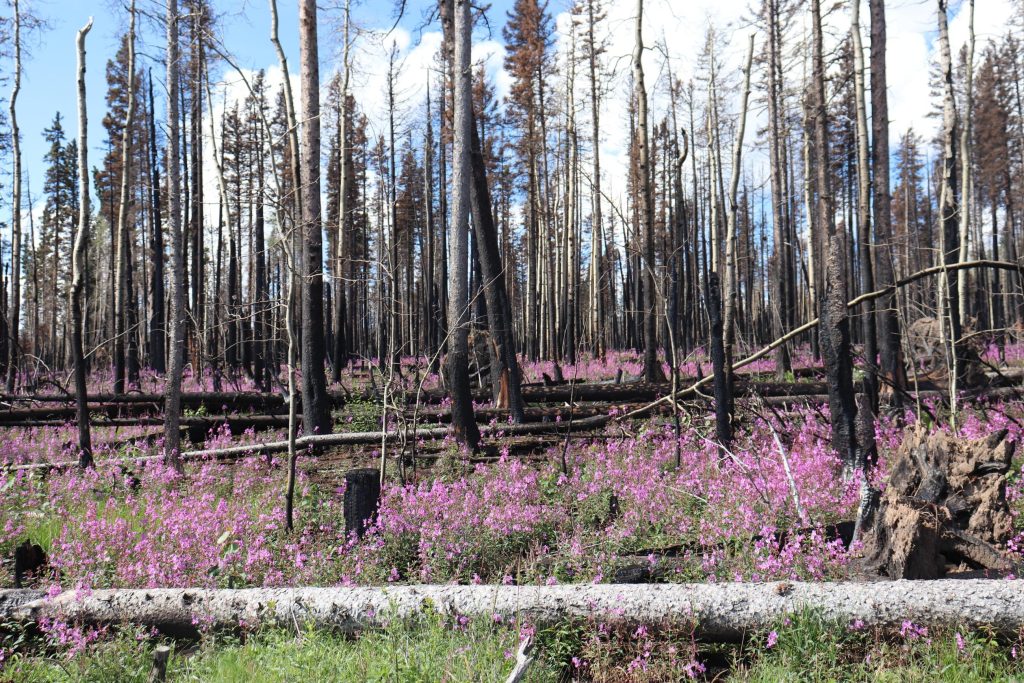Jerry Redfern, Capital & Main
A bill to overhaul New Mexico’s 88-year-old Oil and Gas Act passed out of its first committee hearing this week on a straight party vote, while a bill that would have promoted hydrogen production from natural gas disappeared from the Legislature’s calendar.
The latest version of the Advanced Technology Energy Act, HB12, died quietly over the weekend without even receiving a committee hearing after its sponsors learned that tribal leaders from across the state strongly opposed it. Mark Mitchell, the chairman of the All Pueblo Council of Governors (which represents 19 pueblos in New Mexico and one in Texas), sent a letter outlining the group’s dismay to four of the bill’s five sponsors. He said tribal leaders were worried about the impacts of advanced technology energy projects “on water, groundwater, cultural resources, and sacred sites.” He then recommended the bill be tabled until legislators addressed tribal concerns. While calling the bill “well intentioned,” Mitchell recommended legislators do a better job of explaining the hazards and communicating clearly with tribal people before the next legislative session.
HB12 promoted hydrogen development from fossil fuels like natural gas, as well as nuclear power and carbon sequestration schemes, all of which have been deeply unpopular with New Mexico’s environmental and frontline communities. One of the bill’s original sponsors was Rep. Patty Lundstrom (D), who tried to shepherd hydrogen bills through last year’s Legislature as well — and all failed. In a surprise move at the start of this year’s session, the house speaker kicked her out of the powerful chairmanship of the Legislative Finance Committee and replaced her with Rep. Nathan Small (D), another sponsor of HB12. Both received substantial campaign funds from oil and gas groups in the last election.
Gov. Michelle Lujan Grisham, who received more oil and gas money than any other state Democrat in the last election, is a hydrogen fuel fan as well, having kickstarted the proposal for an interstate hydrogen hub stretching from New Mexico’s northwest natural gas fields to Wyoming.
“After a summer of fires, and floods, and the impacts of climate change on our state, and a $3.6 billion budget surplus, we should be deeply investing in climate solutions.”
~ Camilla Feibelman, Sierra Club, Rio Grande Chapter
This year’s bill combined energy development with provisions from an earlier bill, HB188, which created an economic transition division to help oil and gas workers move into new, more secure and safer jobs outside the industry. Rep. Angelica Rubio (D) was an initial sponsor and author of HB188 and a co-sponsor of the combination bill until she heard on Friday that tribes were opposed. “We needed to pull the language from 188 out of the advanced technology legislation, because I just didn’t feel right moving forward without tribal support,” she says. “Those of us who were sponsors on the legislation … understood that was just what needed to happen,” Rubio says. “It wasn’t a difficult decision.” And the Tribal Council’s call for further tribal consultation registered with her. “I heard that loud and clear for sure,” she says.
The House budget bill to fund state operations next year already appropriated $50 million to the Economic Development Department for advanced technology energy projects. That budget bill is currently being studied in the Senate. Without HB12, “It’s unclear to me what fund that [$50 million] would go into, for what purposes and with what oversight,” says Camilla Feibelman, director of the Rio Grande Chapter of the Sierra Club. She hopes it could be repurposed to fund five other climate justice bills, including Rubio’s HB188, SB5 on climate resilience, SB169 for a climate investment center, HB365 for geothermal investments and HB142 to remediate the San Juan Generating Station and its coal mine. “After a summer of fires, and floods, and the impacts of climate change on our state, and a $3.6 billion budget surplus, we should be deeply investing in climate solutions,” she says.
Rubio remains optimistic that what remains of HB188 still has legs, even as the legislative session enters its final, harried weeks. “We had nothing but support on our piece of the legislation” to help oil and gas workers transition to new jobs, she says. Questions about funding still need to be ironed out, and she was working Wednesday night to figure out next steps. “Hopefully, by the time the session is over, we’ll have a win for 188,” she says.
* * *
The bill to update New Mexico’s Oil and Gas Act fared better this week. SB418 would overhaul the original 1935 act, dramatically reforming the work done by the Oil Conservation Division, the state’s primary oil and gas field enforcement agency. It includes a raft of changes, which include enacting social and environmental justice protections for communities living near oil and gas operations; reworking the makeup of the Oil Conservation Commission that guides the OCD; removing bonding limits on wells so the state can recoup the full cost of plugging and remediating old wellsites; implementing well setbacks requirements from homes; and removing limits on fines for violators. The legislation would represent the act’s most significant update since it was enacted.
In SB418’s initial hearing on Tuesday, Liz Stefanics (D), chair of the Senate Conservation Committee, kept public comment to a minimum, speeding the process as the Legislature rushes toward its closure but frustrating some in the online audience. Bill sponsor Sen. Leo Jaramillo (D) and Tannis Fox, senior attorney with the Western Environmental Law Center and a key author of the bill, fielded a surprisingly short set of questions — surprising because oil and gas legislation often leads to long, discursive comments from industry supporters.
Opponents all said that the legislation would hamper the lucrative oil and gas industry, which funds more than a third of the state budget. Perhaps the most unexpected testimony against the bill came from Mike Miller, who handles governmental affairs for the Permian Basin Petroleum Association, a group that usually doesn’t call for increased staffing and funding for oilfield enforcement. “By their own admission, [OCD] is significantly underfunded and understaffed,” he said. “Wouldn’t it be more sensible to fully fund and staff the department so that they can perform the obligations already placed upon them?”
Both OCD and the New Mexico Environment Department have for years dealt with chronic underfunding that hampers their ability to enforce oil and gas pollution rules demanded by the Legislature and governor. The initial general funding bill unveiled in the House at the start of the session offered only fractions of the budgets requested by the agencies. Following committee hearings, the House sent an updated funding bill to the Senate with more money for OCD, but no extra for NMED’s oilfield enforcement work. Senate committees have yet to discuss the funding bill.
“This bill is about balance and modernization. It’s not about killing oil and gas.”
~ Tannis Fox, Western Environmental Law Center
State agencies provided some of the strongest support for the Oil and Gas Act update. “The commissioner of public lands strongly supports this bill,” said Ari Biernoff, general counsel at the New Mexico State Land Office. “It’s high time that frontline communities be brought to the table.” And in a fiscal impact report compiled by the Legislative Finance Committee and filed with the legislation, the state Indian Affairs Division said that not passing the bill would keep tribal governments and entities from identifying and addressing “current and historic environmental injustices and inequities in the operation and regulation of oil and gas.”
The longest series of questions came from Sen. Joseph Cervantes (D), who went over large parts of the bill line by line, picking apart loose wording, primarily concepts defining social justice and frontline communities. He called one part of the bill “the worst legal writing I’ve read in 23 years.” Even so, in the end he and the committee voted to pass the bill on to the Senate Judiciary Committee — which Cervantes chairs — for further debate.
“I’m all for improvements,” Fox says, and “I heard from [Cervantes] that we have the same goal of protecting environmental justice communities.” She didn’t agree with everything he said about the bill’s wording, though. “As a fellow member of the bar, I have to disagree with [his] characterization … that in the law there aren’t broad concepts,” she says. Defining new concepts that didn’t exist in 1935 “is the stuff of law and lawyering and judging.”
Fox says the bill charts a new path for the state’s relationship with its most lucrative industry. “This bill is about balance and modernization. It’s not about killing oil and gas,” she says. “I think for a bill with the consequences that this has, and going up against the most powerful lobby in the state, I’m really pleased” that it passed quickly.
The speed left some people out. Don Schreiber, perennial hound on the oil and gas industry, drove an hour and a half from his ranch in the San Juan Basin to a friend’s office in Farmington so he would have a strong enough phone signal to lodge his comments in favor of the bill. But the truncated public comment period stymied him. “I felt so bad,” he says. “New Mexico’s knee-deep in professional lobbyists, and I’m not one of them.”
He says lobbyists are fine, but they can’t tell stories like his, “with 122 gas wells immediately around you, a great big [oil] leak at your back door that you’re fighting, on a road that you can barely drive in and out of. And it is worse, worse, worse for people on the Navajo Nation.
“A 1935 world benefits the oil and gas industry to the maximum,” he says, and the current act reflects a time when operators had “free rein to just get that hole in the ground and get that money out.”





















